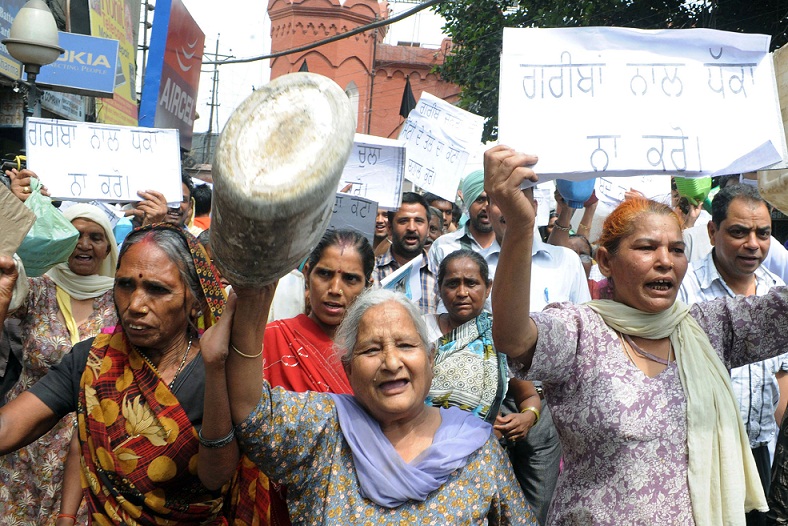This week, leaders from around the globe met at the United Nations to review the world’s progress toward the Millennium Development Goals (MDGs). While there’s been some improvement, it’s been uneven. The world won’t win the fight against poverty until it puts human rights at the heart of the struggle. In the last several weeks, tens of thousands of Amnesty International activists have raised their voices in support of that message.
Last Thursday, in advance of the MDGs summit, Amnesty International Secretary-General Salil Shetty delivered more than 20,000 signatures and postcards from around the world to Joseph Deiss, the incoming president of the U.N. General Assembly and co-chair of the meeting.

Amnesty International Secretary-General Salil Shetty (R) delivers petitions and postcards to incoming U.N. General Assembly President Joseph Deiss (L)
Today, as the General Assembly begins the work of its annual session, including implementing the outcomes of the summit, Amnesty International activists sent a second batch of more than 20,000 signatures and postcards to Mr. Deiss — bringing the total to more than 46,000 names.

Amnesty activists mail petitions and postcards to U.N. General Assembly President Joseph Deiss
There are only five years left until 2015, the deadline for meeting the Goals. And the debate about what anti-poverty framework should replace the MDGs after 2015 — that is, what “MDGs 2.0” should look like — is already well underway. As supporters of human rights, this is a critical moment for us to insist that principles like anti-discrimination, participation and accountability be at the core of the global fight against poverty.




